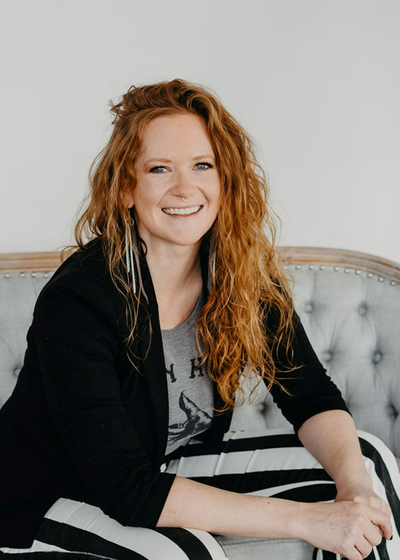LGBTQ financial planning: Learn to ask the right questions
Although the fundamentals of a financial plan remain similar for all clients, there are important nuances to consider when working with members of the LGBTQ community. As a wealth management advisor who identifies as bisexual and polyamorous, I specialize in working with members of the LGBTQ community and know firsthand that using a turnkey approach to assisting our community is not effective. However, staying educated on the unique issues that LGBTQ+ individuals face and learning to ask the right questions can help make a tremendous impact on your clients’ lives, helping them to secure both their financial and familial future.

Many advisors recommend that clients create an emergency fund that contains three to six months’ worth of salary. This amount typically is enough to cover most unanticipated expenses – including medical bills and car repairs – or to act as a financial lifeline should they find themselves suddenly unemployed. However, this among may not be enough for members of the LGBTQ community who may still be subject to discrimination based on sexual orientation or gender issues.
Protections extended
In June 2020, the U.S. Supreme Court extended the protections of the Civil Rights Act to gay and transgender employees, making it illegal to terminate an employee for being gay or transgender. However, the ruling applies only to employers with 15 or more employees, meaning that smaller employers can still fire an individual based on their sexual orientation or gender issues, unless they are barred from doing so by their state laws. Currently, only 21 states have laws in place to fully protect members of the LGBTQ community from employment discrimination. With this in mind, a safe recommendation for members of the LGBTQ community is to create an emergency fund that can last for nine to 12 months. This is a similar recommendation for anyone who is self-employed.
Asking clients to conduct an annual budget audit can help to determine how they actually are spending their money. This budget audit is beneficial not just for those in the LGBTQ community, but for all individuals during the financial planning process. It is frequently an eye-opening experience for clients to realize that their perceived spending habits differ greatly from reality. However, conducting a budget audit allows clients to make more intentional decisions about how they choose to spend, and provides the clarity to help clients focus on the things that matter most to them.
When talking to LGBTQ clients about planning their future, it is important to remember that many of life’s important milestones can be significantly more expensive for members of this community
When talking to LGBTQ clients about planning their future, it is important to remember that many of life’s important milestones can be significantly more expensive for members of this community – perhaps most notably with regard to family planning. In vitro fertilization, surrogacy and adoption fees can add up quickly, but many clients do not also consider the potential future legal fees they may face.
For example, when unmarried female couples start a family, often one is the biological parent while their partner may not automatically be considered to be the child’s other legal parent. In the event that the biological parent passes away, depending on the laws of the state, the surviving parent may not automatically become the child’s guardian if they have not legally adopted that child.
There are also tremendous costs to be considered for transgender individuals who are looking to transition. Many insurance companies do not cover the necessary surgery and ongoing hormone replacement therapy costs, so clients may need to plan for these out-of-pocket expenses.
Protecting finances through insurance
Insurance is an important part of any comprehensive financial plan. Although most clients hold policies to protect their physical possessions, many have not yet considered protecting themselves and their immediate family members financially should they become incapacitated and unable to work, or if they die unexpectedly. Including disability and life insurance policies can help to provide clients with the peace of mind to know they and their loved ones are protected should the worst occur.
When working with LGBTQ couples, it is especially important for those with children from previous relationships or adopted children to explicitly name their insurance policy beneficiaries. This will eliminate any possible confusion over who should receive benefits when a claim is made.
Retirement planning
Whether you’re working with individuals or with a couple, it’s essential to discuss each client’s unique vision for retirement in order to best assist in creating a plan to grow their savings and investments. As laws continue to evolve, it also can be helpful to understand the rules of claiming Social Security survivor benefits and retirement account distributions when advising unmarried LGBTQ couples who are in long-term relationships.
Also consider that those who identify as female in the LGBTQ community may be at a demographic disadvantage, facing additional savings challenges. Historically speaking, we know that women live longer than men do, and, throughout their careers, women also earn less than men while performing similar work. To ensure a financially secure retirement, women and female couples often must plan to save at a higher rate than male or heterosexual couples.
Developing an estate plan
Estate plans are essential to any financial plan, allowing clients to ensure that their wishes are respected and their families are cared for in the event of their death. Specific elements of these plans take on critical importance for LGBTQ couples, particularly if they are not legally married.
I encourage my unmarried couple clients to create a durable power of attorney. This allows them to ensure that their partners are able to make medical decisions for them should they become incapacitated. Without this document, it is possible that their partners would not have the legal right to do so during an emergency. Again, it is also important for unmarried couples with children to consider the rights of the non-biological parent and determine whether legal adoption is necessary to preserve parental rights.
While advising members of the LGBTQ community may include unique considerations, as with every client, the sooner financial planning begins the better! By educating yourself on these issues and sharing your knowledge, you can help your LGBTQ clients lay the groundwork for a solid financial future, ensuring these individuals can provide for themselves and their loved ones for years to come.
Sarah A. Tinkler, CLU, ChFC, RICP, CFP, CAP, is a Northwestern Mutual wealth management advisor in Denver, Colo. She may be contacted at [email protected].
© Entire contents copyright 2022 by InsuranceNewsNet.com Inc. All rights reserved. No part of this article may be reprinted without the expressed written consent from InsuranceNewsNet.com.






Foresters Financial boosts UL crediting rate to 4.75%
Communicating retirement benefits could keep employees from jumping ship
Advisor News
- Winona County approves 11% tax levy increase
- Top firms’ 2026 market forecasts every financial advisor should know
- Retirement optimism climbs, but emotion-driven investing threatens growth
- US economy to ride tax cut tailwind but faces risks
- Investor use of online brokerage accounts, new investment techniques rises
More Advisor NewsAnnuity News
- Judge denies new trial for Jeffrey Cutter on Advisors Act violation
- Great-West Life & Annuity Insurance Company Trademark Application for “EMPOWER BENEFIT CONSULTING SERVICES” Filed: Great-West Life & Annuity Insurance Company
- 2025 Top 5 Annuity Stories: Lawsuits, layoffs and Brighthouse sale rumors
- An Application for the Trademark “DYNAMIC RETIREMENT MANAGER” Has Been Filed by Great-West Life & Annuity Insurance Company: Great-West Life & Annuity Insurance Company
- Product understanding will drive the future of insurance
More Annuity NewsHealth/Employee Benefits News
- Thousands of Alaskans face health care ‘cliff in 2026
- As federal health tax credits end, Chicago-area leaders warn about costs to Cook County and Illinois hospitals
- Trademark Application for “MANAGED CHOICE NETWORK” Filed by Aetna Inc.: Aetna Inc.
- Study Results from University of California in the Area of Managed Care Reported (Minimally Invasive Overactive Bladder Therapy After Prolapse Surgery): Managed Care
- Reports from Guttmacher Institute Add New Data to Findings in Managed Care (Investing In Reproductive Health: Contraceptive Use and Preference Fulfillment Among Low-income Individuals Across State Policy Contexts): Managed Care
More Health/Employee Benefits NewsLife Insurance News
- One Bellevue Place changes hands for $90.3M
- To attract Gen Z, insurance must rewrite its story
- Baby On Board
- 2025 Top 5 Life Insurance Stories: IUL takes center stage as lawsuits pile up
- Private placement securities continue to be attractive to insurers
More Life Insurance News